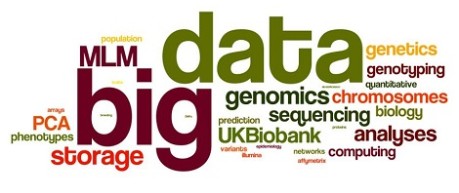Monday 22nd October 2018, 11:00am
Scientists have developed an atlas of genetic associations with data from over 452,000 individuals.

To understand whether a genetic variant is associated with a certain disease or trait, scientists need to conduct genetic association studies. Searching for genetic associations can incur in high computational costs.
This information will now be widely available as a result of the new Gene ATLAS, the largest genetic analysis to date.
The Gene ATLAS is a large database that allows scientists to search for associations between millions of genetic variants and hundreds of traits in humans. It currently contains data from 778 traits and 30 million variants, obtained from analysing the data of 452,000 UK Biobank participants of White-British descend.
The Gene ATLAS has been developed by Professor Albert Tenesa and colleagues at The Roslin Institute and MRC Human Genetics Unit, University of Edinburgh. To deal with the challenge of analysing data on this scale, they developed a software tool designed to run the analysis in a large supercomputer.
The results are accessible through a custom made web interface, which allows other researches in different disciplines, to easily investigate and discover the relationship between genetic variants and several human traits and diseases.
The group benefited from the long tradition of applying the statistical methods used in this study and in developing computational methods present in The Roslin Institute, the MRC Institute of Genetics & Molecular Medicine, and the University of Edinburgh, as well as the computational resources available in these institutions.
"Analysing genetic associations usually means high computational costs. Gene ATLAS is the largest genetic analysis to date and it will make it easier for researchers from a range of disciplines to search for associations between genetic variants and human traits and diseases, without incurring in those high costs."
Professor Albert Tenesa, The Roslin Institute & MRC Human Genetics Unit, University of EdinburghSource: The Roslin Institute